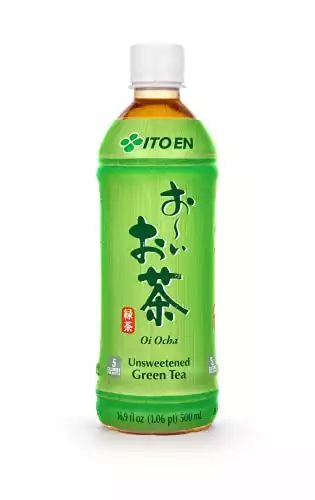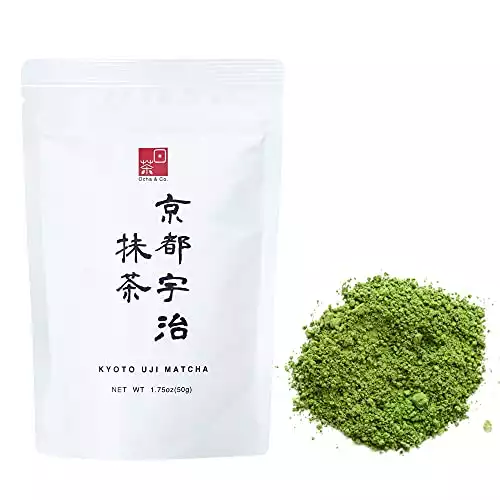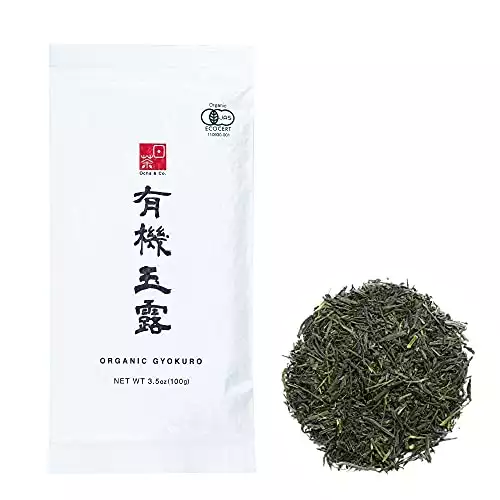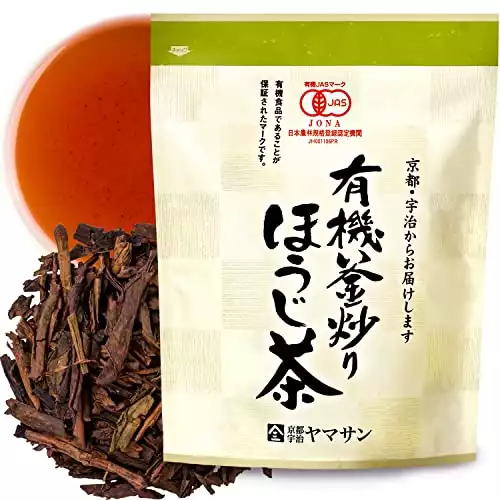Enjoying authentic Japanese green tea is an experience that every tea lover should aim for. Check out the best Japanese green tea brands to bring Japan to you.
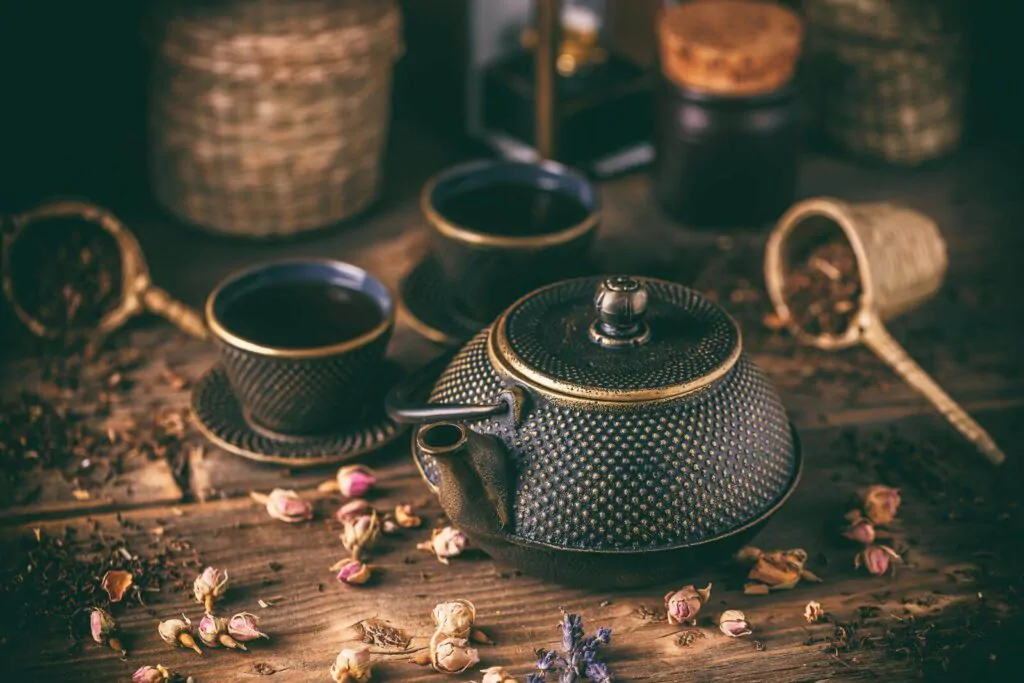
Drinking green tea plays a crucial part in Japanese culture, so much so that more than 70% of Japanese people drink green tea daily, while 89.6% enjoy it more than once a week. It is no wonder that drinking tea has been heavily featured in Japanese media.
Believe it or not, my first exposure to tea was through anime. When the protagonist sits down for a cuppa, you know something big is about to happen, or the plot arc has concluded. This act always exudes a sense of relaxation and meditation, something we, as tea lovers, should yearn to experience at least once!
Here are some of the best Japanese green tea brands that will bring you closer to the land of the rising sun!
- What To Look For In A Japanese Green Tea Brand
- How To Pick The Best Japanese Green Tea Brands
- 1. Best Gateway Japanese Green Tea Brand
- 2. Best Premium Japanese Green Tea Brand
- 3. Best Japanese Green Tea Brand For Early-Risers
- 4. Best Japanese Green Tea Brand For Those Sensitive To Caffeine
- Testing Criteria
- Why You Can Trust Me
- Tea Brands Guides
What To Look For In A Japanese Green Tea Brand
I am always forgiving whenever I make these lists, so loose-leaf, tea bags, or even powder can make it to this list. However, the green tea brand should have these three things.
Authenticity
The product should be based, made, or manufactured in Japan. No imported products from international tea companies will make the cut.
Tea Quality
There are more than ten types of Japanese green tea, and we won’t be able to tackle it all here. Some will be darker in hue, and some will be larger in size, but as long as the product shows consistency in leaf shape or color, it will pass.
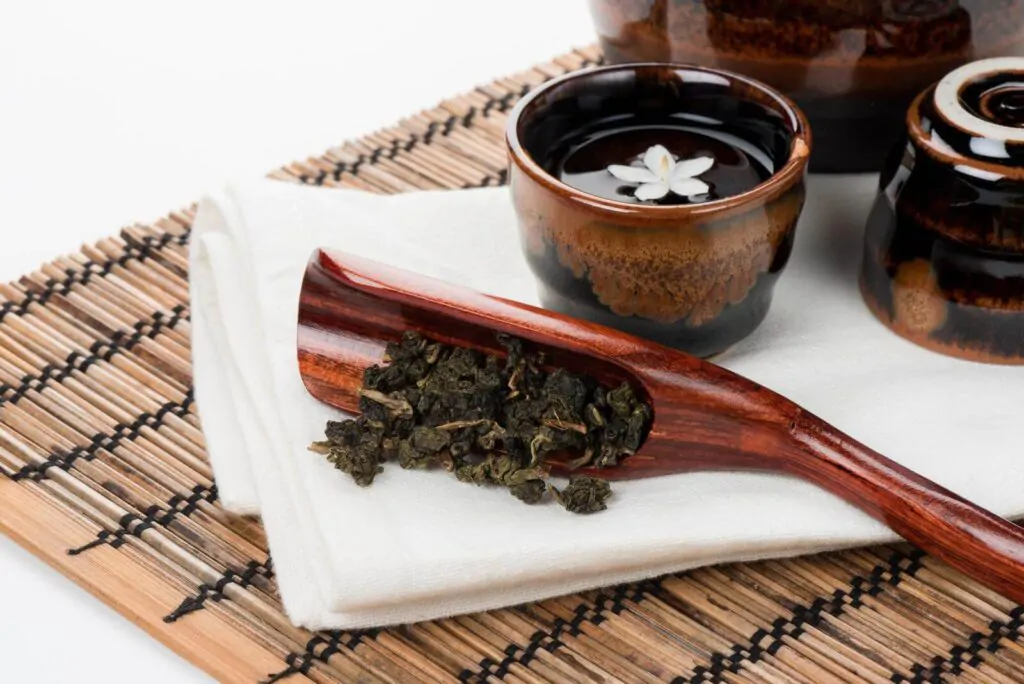
If it is in tea bags, ensure the packaging is tightly sealed but has enough space for the leaves to unfurl. If in powder form, there should be no clumps, and it should be smooth.
Smell And Taste
The aroma and the flavor can be light or heavy, but they should be robust. You can expect some vegetal undertones, but it shouldn’t be bitter. What should stand out is the overall balance of sweetness, bitterness, and umami.
How To Pick The Best Japanese Green Tea Brands
The product can be affordable or premium as long as it has great value for money and satisfies the criteria we ran down above.
1. Best Gateway Japanese Green Tea Brand
Sencha is considered the everyday green tea for the Japanese. If you want to start immersing yourself in the beverage, you can start with Ito En Oi Ocha’s Sencha Green Tea. The brand is considered one of the “mainstream” tea brands in Japan, yet the flavor of their sencha is top-notch.
It features interesting notes of strawberry and pome fruit with a slight hint of matcha earthiness. This is best for beginners as the flavors are perfectly balanced, albeit slightly fruity.
Pros
- Affordable given the quality of the tea
- Comes in teabags, so it is easy to brew
- Clear flavor profile
Cons
- Can be too mild for tea connoisseurs
- Subtle grassy and hay-like flavor that can be off-putting to some
- Sea-like aroma that might catch you off guard
- Whole Leaf Tea
- Low calorie
- Oi Ocha provides natural catechin tea antioxidants and other healthy goodies
- ITO EN teas are brewed with no artificial colors or flavors
2. Best Premium Japanese Green Tea Brand
There are a lot of premium and high-quality Japanese green tea brands in the market today, and, to be honest, it is so hard to choose just one. My vote goes to Ochaski Kyoma’s Premium Uji Kyoto Organic Matcha. Their product is 100% organic and grown in the mountainous city of Uji by a family of tea farmers dating back to the mid-19th century.
Its powder is vibrantly green, the aroma is divine, and once brewed the rich combination of earthiness, nuttiness, and natural sweetness dances around your mouth like silk.
Check out our explainer on is green tea matcha.
Pros
- Impeccable flavor and quality
- Single-source
- Every component is from Japan
Cons
- Very pricey
- The full flavor of matcha can be overpowering for newcomers
- Difficult to purchase; it’s almost always out of stock
If you are unfamiliar with matcha, you might want to check out our list of the best matcha tea brands for first-timers!
3. Best Japanese Green Tea Brand For Early-Risers
Gyokuro and matcha green tea contain the most caffeine as the leaves are shaded from the sun for around 20 to 30 days before they are harvested. This ensures the concentration of the leaves natural properties.
If you are looking for an effective mellow energizer, I recommend Ocha & Co. Organic Gyokuro Green Tea. The brand is also the winner of the 46th Japanese Ministry of Agriculture Competition, one of, if not the most esteemed, tea competitions in the country.
Though their gyokuro tea is richer in caffeine, the flavor is light and sweet with a tinge of umami and grassy undertones. When you let the tea bask in your mouth, smooth notes of butter and vanilla will become apparent, allowing you to experience a warmhearted cuppa that gently wakes you up as if you are staying in a ryokan in Kyoto.
Pros
- Vacuum-sealed packaging
- Organic
- Excellent value for money despite being slightly pricey
Cons
- Tends to be bitter when steeped for too long
- The brewing process has less room for error
- Has a faint fishy smell that can be unappealing to newcomers
- Shade Grown Japanese Loose Leaf Green Tea
- Organic
- 100g/3.5oz.
4. Best Japanese Green Tea Brand For Those Sensitive To Caffeine
You can make an argument for any green tea under the Yamasan group; the brand is based in Uji, Kyoto, which is the homeplace of gyokuro and matcha tea. To give our list some variation without compromising quality, I chose the hojicha green tea.
As with all types of hojicha green tea, it is light brown in color due to the roasting process it undergoes.
When brewed, it emits a wonderful smoky aroma and has a malty aftertaste.
Pros
- Highly rated taste
- Loose-leaf tea for a more potent flavor
- Ideal for those with low-caffeine tolerances
Cons
- Some customers find the flavors too mild
- Not everyone has a tea strainer
Testing Criteria
The reviews and the brand’s farming and manufacturing process were key to determining the best Japanese green tea brands, although I will admit I have to rely on personal insight to break the tie. It was very challenging to choose as there is a huge number of Japanese brands that make excellent green tea.
Why You Can Trust Me
Having close friends as anime lovers brought me closer to Japanese green tea brands. I had my fair share of the green cuppas on the list, as well as the other ones that didn’t make it here.
If you want to come close to experiencing Japanese culture through their green tea, I suggest going for the Fukujuen IYEMON’s Hojicha Green Tea or the Itoen Oi Ocha’s Sencha Green Tea. They’re easy to purchase, easy to brew, and the quality is assured with every cup.
